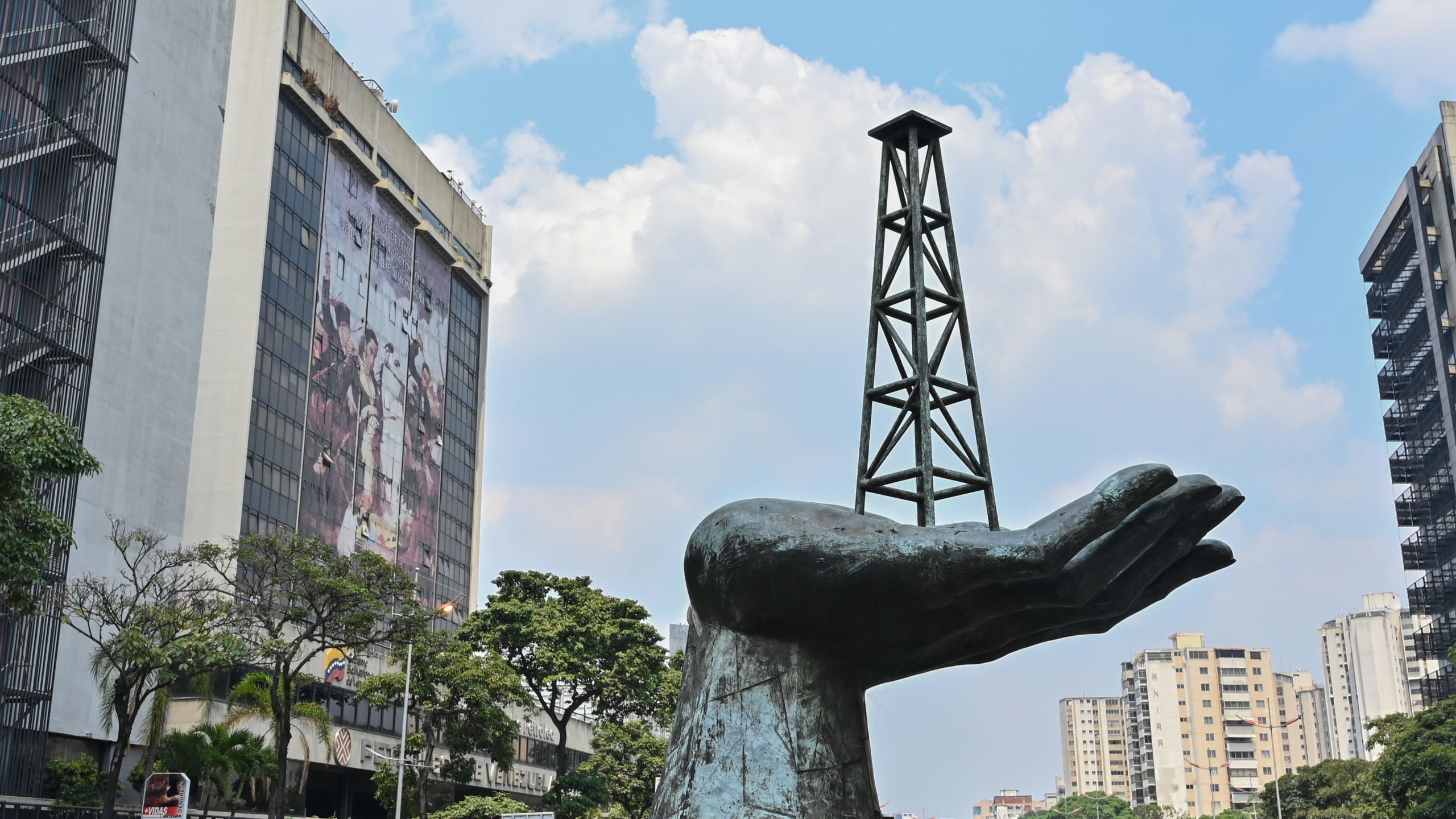
The U.S. is considering its options to replace oil imports from Russia amid Moscow’s invasion of Ukraine, but rather than working to fast-track increased oil deliveries from Canada, the Biden administration is reportedly in talks to ease sanctions so the U.S. can buy oil from Venezuela, where the government stands accused of a litany of human rights abuses.
Canada is the USA’s closest ally, and a world-leading responsible oil developer.
U.S. sanctions against Venezuelan oil have been in place since 2019 as part of a bid to pressure authoritarian leader Nicolàs Maduro to leave power.
President Biden should look to Canada to improve U.S. energy security instead of negotiating with a hostile government accused of extensive human rights abuses. Here are the facts.
Fact: Venezuela’s government is accused of harming its citizens
Venezuela “is facing a severe humanitarian emergency” under Maduro, according to Human Rights Watch. In late 2021, the International Criminal Court opened an investigation into Venezuela’s possible crimes against humanity.
“The exodus of Venezuelans fleeing repression and the humanitarian emergency represents the largest migration crisis in recent Latin American history,” Human Rights Watch said in its World Report 2022.
The Maduro government and its security forces are responsible for offences against their opponents including jail sentences, “forced disappearances,” and executions, Human Rights Watch says.
Because of poor governance, innocent Venezuelans are suffering. The World Food Programme estimates that one in three Venezuelans is food insecure and in need of assistance. And UNICEF reported 5.8 percent of children screened between January and June 2021 had acute malnutrition, including 1.5 percent with severe acute malnutrition.
UNICEF also reports that as of September 2021, 73 per cent of Venezuelans didn’t have continuous access to water.
Amid the COVID-19 pandemic, 83 per cent of Venezuela’s hospitals have insufficient or no access to personal protective equipment such as masks and gloves, and 95 per cent similarly lack sufficient cleaning supplies, including soap and disinfectant, Human Rights Watch said.
Fact: Venezuelan oil is worse for the environment and the world
Venezuela and Canada are both home to vast deposits of heavy and extra-heavy oil – the kind consumed primarily in the massive U.S. Gulf Coast refining cluster. Canada’s Keystone XL pipeline would have provided a direct “bullet line” there from Alberta.
Shipments to the region from Venezuela have been steadily decreasing “decades of decline and decay” prior to the U.S. sanctions, according to IHS Markit.
President Biden cancelled Keystone XL within hours of taking office based on Canadian oil’s perceived impact on climate change. But there is evidence that Venezuelan oil has a greater footprint, and like Canada, little evidence that Venezuela is trying to make improvements.
There is limited data available on emissions per barrel or total emissions from Venezuela’s oil industry. But some insight comes from a respected 2018 study led by researchers at Stanford University.
They found Venezuela’s emissions per unit of oil to be higher than Canada’s on average (20 grams of CO2 equivalent per MJ of energy compared to about 18 gCO2e/MJ), and the high end of the range for emissions in Venezuela to be much higher than in Canada (about 32 gCO2e/MJ versus about 23gCO2e/MJ).
But the researchers also noted that Canada was only one of a handful of countries with “higher quality data,” meaning that their estimate for Venezuela is likely incomplete. The study also uses data from 2015, and significant progress has been made in Canada since then to reduce emissions intensity.
In Canada’s oil sands, where most of the country’s oil is produced, average emissions per barrel decreased by 27 per cent since 2013, according to BMO reports.
And according to a recent study by consultancy IHS Markit, total oil sands emissions – not just emissions per barrel – are on track to start decreasing in the next five years, even as production continues to grow.
But as the energy crisis spurred by Russia’s invasion of Ukraine shows us, environmental performance is not the only metric by which oil producers should be measured. Consider environmental, social and governance (ESG) ratings, which account for a variety of metrics including greenhouse gas emissions, water use, Indigenous engagement, worker safety, diversity and inclusion, and regulatory processes.
Of the world’s largest oil reserve holders, Canada ranks number one in ESG performance while Venezuela ranks 17, according to BMO’s analysis of data from the World Bank Governance Index, Social Progress Index and Yale Environmental Performance Index.
Fact: The U.S. will require oil imports for decades to come
Oil, and oil imports, will continue to be critically important to the U.S. long into the future, even as more renewable energy comes online, according to the latest outlook by the U.S. Energy Information Administration (EIA).
The U.S. imported about 6.5 million barrels of oil per day in 2021, according to EIA data. That is projected to rise to 7.3 million barrels per day in 2030 and 8 million barrels per day in 2040 before dropping modestly to 7.5 million barrels per day in 2050.
The U.S. should look to Canada over other suppliers to meet as much of those imports as possible, as a trusted ally with shared values and goals on reducing greenhouse gas emissions.
The unaltered reproduction of this content is free of charge with attribution to Canadian Energy Centre Ltd.